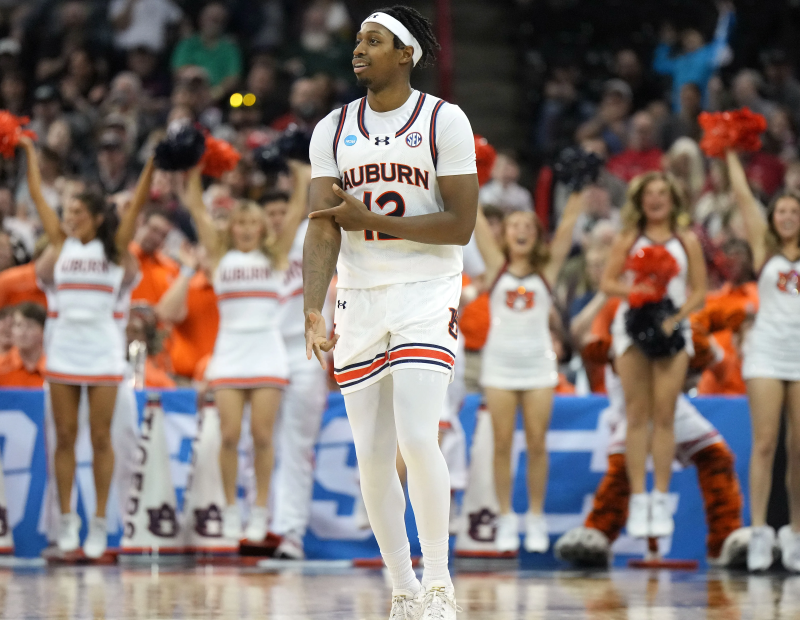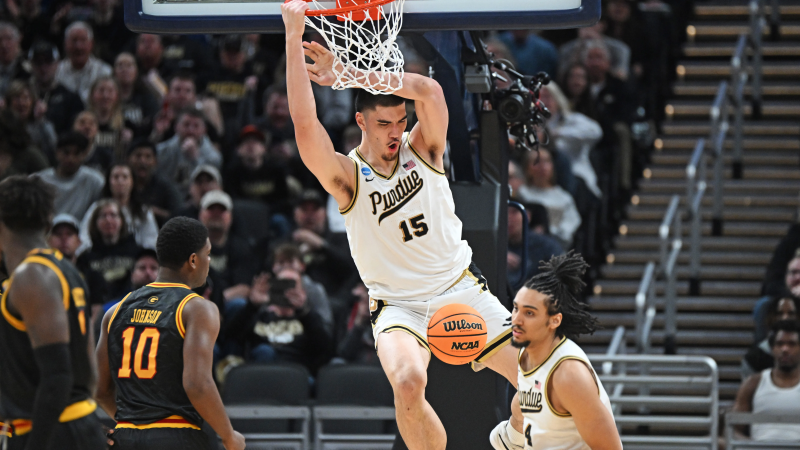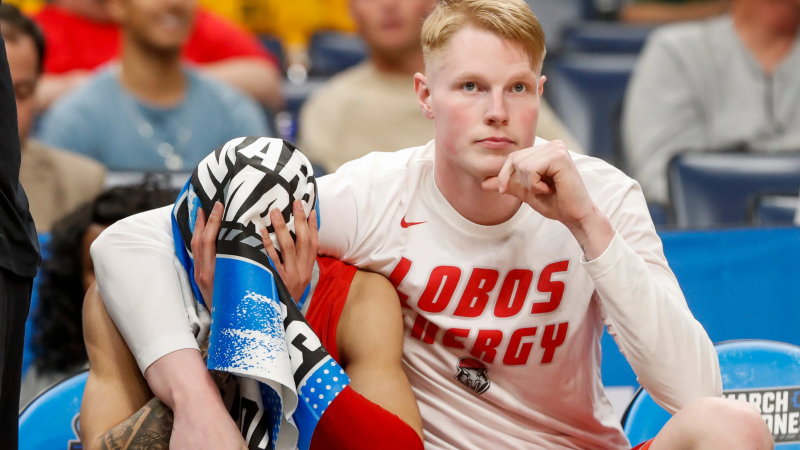SEC struggles show Greg Sankey should keep hands off of NCAA Tournament expansion
The basketball gods have spoken, and their message to Southeastern Conference commissioner Greg Sankey is crystal clear: Get your greedy, dirty hands off our NCAA Tournament.
Do you believe in karma? If not, maybe it’s time to start.
How else to explain Sankey going on a public relations crusade against the mid-majors and small conference champions who make March Madness what it is, then watching as his mighty league fell flat on its face.
SEC tournament champion Auburn? Gone.
Kentucky? Buh-bye.
FOLLOW THE MADNESS: NCAA basketball bracket, scores, schedules, teams and more.
Florida? See ya.
Mississippi State? Blown out.
South Carolina? Completely outclassed.
On the bright side, Tennessee, Texas A&M and Alabama managed to get through their first-round games, giving the SEC a slightly less embarrassing 3-5 record. Hey, it just means more … coping.
But if what happened Thursday and Friday isn’t a signal for the Dear Leader of the nation’s premiere athletic conference to humble himself and acknowledge there are bigger forces at play in this tournament, he has lost all sense of reality and proportion.

In this event, it doesn’t matter whether you won the SEC or represent the one-bid Ivy League. A league champion is a league champion, treated equally and seeded by a committee on the totality of their seasons. And when you toss it up and go play, when the politics and propaganda melt away, what you get is the purest form of sport.
Best team on the day wins.
You don’t mess with that, commissioner. You don’t even pretend to threaten something so sacred, so perfect and — as we see in this tournament every single year — so revealing of the sporting character of its participants.
But Sankey’s public comments over the last week suggested a colder, more transactional view of how he wants the tournament to work in the future.
In an interview with ESPN, Sankey — who has been pushing for NCAA Tournament expansion the last few years — showed absolutely zero respect or regard for the role of the mid-major conference champions in making this event a cultural phenomenon that transcends college basketball’s place in the sporting ecosystem.
“We are giving away highly competitive opportunities for automatic qualifiers, and I think that pressure is going to rise as we have more competitive basketball leagues at the top end because of expansion,” he said.
Then, given the chance to clarify a couple days later in an interview with The Athletic, he continued to call for “a review” of how the tournament field is selected while never expressly saying that access should be guaranteed for small conferences.
In fact, he even floated the notion that sending the last four at-large selections to Dayton for the First Four should be reconsidered.
“Some of those 11 seeds have proven that they go a long way in the tournament,” he said. “So we do have, I think, a healthy need for review. I understand access, I understand the special nature (of Cinderellas) and certainly respect that, but right now in college athletics, nothing is static.”
That’s a dangerous comment, and here’s why: If the tournament expands from 68 to 76 teams, as some administrators believe it will in the next several years, it changes the entire bracket.
Instead of four play-in games as we have now — two of which feed into the 16 seeds in the main bracket — there will be 12 games and 24 teams outside the main bracket.

Who gets relegated to those 24 spots? Is it the weakest at-large teams, a large number of which will presumably come from mid-pack teams in the super-sized SEC or Big Ten? Or will it be the small conference champions fighting each other for the chance to take on the big boys, with half of them being eliminated before the real tournament starts?
So instead of the nation being transfixed by Oakland and sharpshooter Jack Gohlke taking it to Kentucky or getting to see the magic of Yale stunning Auburn, you’d be more likely to get Oakland and Yale playing each other in the format Sankey wants. Meanwhile, his schools get a free pass into the round of 64 and minimize their chances of getting embarrassed by a mid-major.
Let’s be very clear here: Anyone who wants that version of the tournament hates the sport. This isn’t football. This is an equal-opportunity sport where future YMCA All-Stars can get the better of NBA draft picks for the only 40 minutes in their careers that matter.
Even Auburn coach Bruce Pearl managed Friday to acknowledge that his team’s 78-76 loss to Yale, just days after cutting down the nets at the SEC tournament, is what the popularity of this tournament is really all about.
“This just shows you what a great tournament this is,” he said during an interview on CBS. "It shows you how special March is. I was on the other side (at Wisconsin-Milwaukee), I was a 12 (seed), I was a 13. I know how much this means to those mid-major programs that are fighting all year long to play in games like this.”

The SEC, through expansion and its fan base and its financial commitment to win, has stacked the deck in pretty much every sport for 330-plus days a year. But for the three weeks in March and April, they have to prove it on the basketball court like everyone else.
Asking for more than that is akin to throwing up a pair of middle fingers at those who have built and sustained this national treasure that always — always — delivers the goods. Hopefully the SEC’s disastrous weekend teaches Sankey a lesson: Stop trying to make this tournament your personal plaything.
How dare you, commissioner.
Disclaimer: The copyright of this article belongs to the original author. Reposting this article is solely for the purpose of information dissemination and does not constitute any investment advice. If there is any infringement, please contact us immediately. We will make corrections or deletions as necessary. Thank you.






